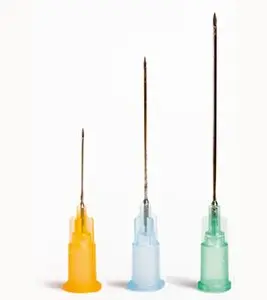Toni Robinson, Compliance Manager, provides some practical advice for the safe disposal of used medical needles, syringes and EpiPens.
Discarded used needles and syringes are dangerous, and news reports of young children discovering them in parks, gardens or undergrowth will always be upsetting.
But it’s not just when they’re carelessly abandoned that syringes and other sharp medical equipment can be dangerous, even people who think they are disposing of them responsibly are putting others at risk.
We have seen a significant increase in EpiPens, needles and syringes in the recyclable waste we collect.

We have seen a significant increase in EpiPens, needles and syringes in the recyclable waste we collect.Used needles and syringes cannot be recycled. Many will contain medicines which can only be made safe by high temperature incineration.
How to safely dispose of needles and syringes
In order for used needles, syringes and EpiPens to be sent for incineration they must be placed into a ‘sharps bin’. These are approved yellow containers, which can be freely obtained with a standard prescription form from your GP. They are fully sealable, puncture-resistant and safe. When they are full, the patient can return them to the GP surgery or pharmacy where they will be exchanged for a new one. The sharps bins are then collected by a licensed waste carrier such as Grundon and incinerated at over 1,100 degrees Celsius, which burns off any harmful residues.
Storing used syringes or other sharps in anything other than an approved yellow sharps bin is dangerous. Why? Even if you think you are being responsible by putting them in an old glass jar, or an empty drinks bottle destined for recycling, when they arrive at our recycling facilities where the waste is sorted, they can break open, becoming a hazard in the process.
All recycled waste Grundon collects is taken to one of our Materials Recovery Facilities where, after going through a series of conveyors, separators and magnets, it eventually reaches a picking station where staff sort by hand. If there’s a used needle they’re not expecting amongst this waste, even though everyone is required to wear thick ‘needle resistant’ gloves, there is a frightening risk of injury.
Needlestick injuries, however minor, are reported immediately and our staff members are taken to hospital and provided with appropriate medical treatment. It can be truly a harrowing experience, as affected staff members will agree. Test results for life debilitating infections can take weeks or even months to come back, unsettling not only the affected member of staff, but also their family, friends and all of us at Grundon.
We have a duty of care to look after our staff and provide a workplace that is safe and free from harm. We have no way of knowing the origin or usage of these needles and we do not know if they pose an infection risk to our staff.
Grundon has seen a vast increase in needles and syringes in our recyclable waste, and we believe that one of the key ways that we can reduce numbers is through increased awareness and education as to how to dispose of them correctly and safely. Understanding how the process really works will help more of us dispose of our waste responsibly.
Even if a needle isn’t put into recycling, but thrown away in general waste destined for landfill, or energy from waste facility, there’s still a risk to human life. All rubbish has to be taken out of the bins on our streets or in public places by a waste worker, many of whom won’t be wearing needle safe gloves.
Grundon provides a sharps bin collection and disposal service and we can do a site clearance, or collect from a home or business. However, this can also be arranged free through your local authority, GP or pharmacy.
Five steps to safe disposal of needles and syringes
- Used needles and syringes cannot be recycled. Only high temperature incineration will dispose of them safely
- Keep safe by asking your GP for a prescription for a free sharps bin. It will usually be a small one litre yellow sharps bin
- Store the sharps bin in a safe but easily accessible place for you, but out of the reach of children
- Once it’s full, return to your GP or pharmacy and exchange for a new one. Some local authorities will arrange for it to be collected from your home if you find it difficult to get out
- Never place needles, EpiPens or syringes in your recycling or general waste. Always use a sharps bin.
